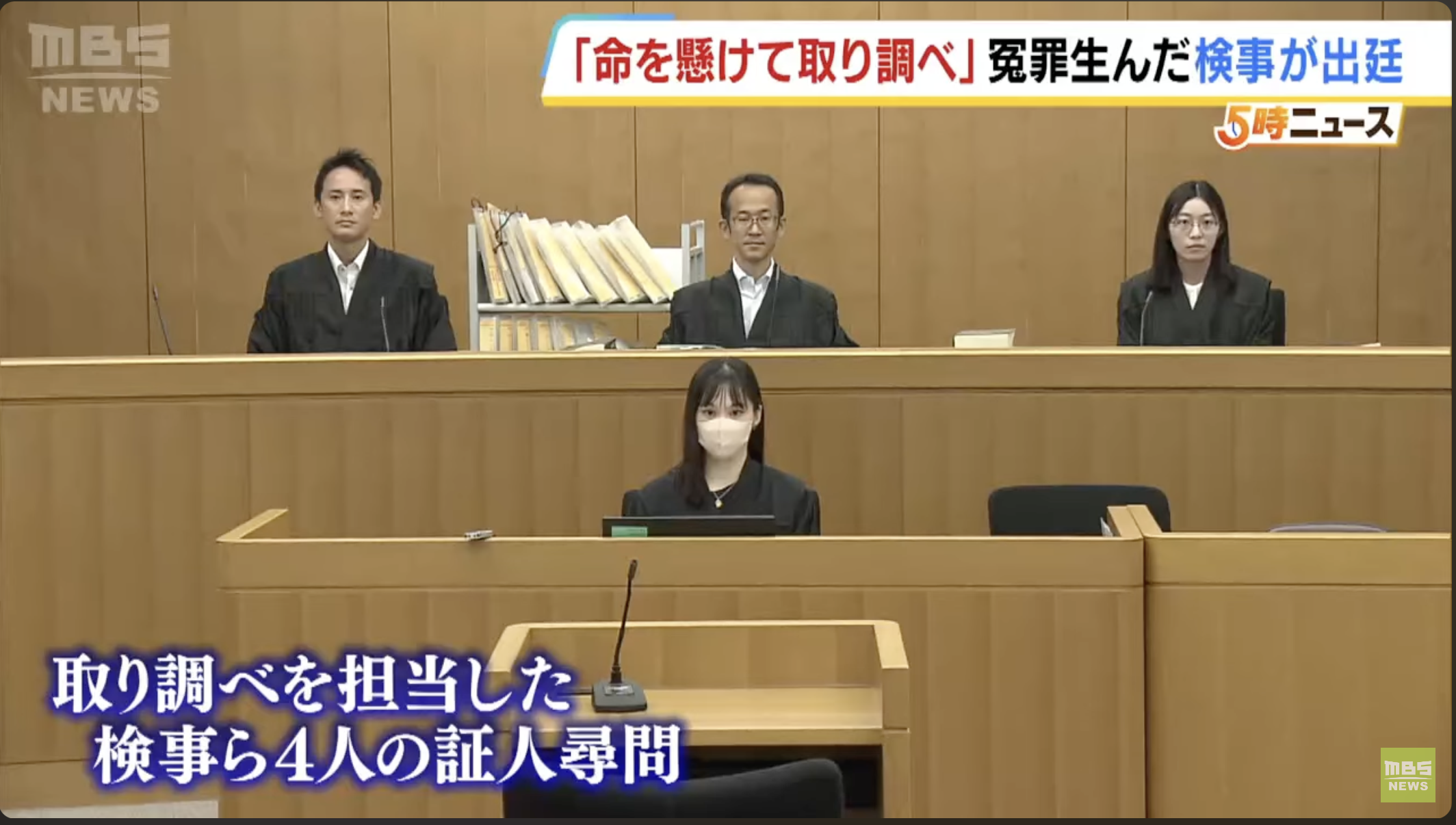Airi Nishii is a former judge turned lawyer, who plays a crucial role in bringing the realities of wrongful convictions to various media outlets while highlighting the issues in the judiciary and criminal trials. Although she is still young, she is known for her sharp mind and concise writing, and she delivers compelling messages daily on platforms like “X.”
Below is an excerpt from News Picks.
Today, I am introducing the wrongful conviction case of the former CEO of Pressance Corporation, for which I was part of the defense team.
This case involves Shinobu Yamagishi, the founding CEO of a then publicly traded company on the Tokyo Stock Exchange, who was arrested and indicted by the Osaka District Public Prosecutors’ Office Special Investigation Department as an accomplice to embezzlement.
However, Mr. Yamagishi had never even met the head of the educational institution who actually committed the embezzlement, and there was multiple objective evidence proving his innocence.
Despite this, why was Mr. Yamagishi arrested? The Osaka District Public Prosecutors’ Office Special Investigation Department coerced statements that aligned with their narrative by intimidating Mr. Yamagishi’s subordinates and a client company’s president during interrogations.
In the criminal trial, the defense team demonstrated Mr. Yamagishi’s innocence and exposed issues with the prosecutor’s interrogation, leading to a not guilty verdict that was not appealed and became final.
In our opening statement in this criminal case, we described this incident as follows:
“This case is a wrongful conviction fabricated by the Osaka District Public Prosecutors’ Office Special Investigation Department.”
Day by day, I (the author) grow more suspicious that this country might be a socialist state. All citizen activities must be monitored and controlled by the authorities, and occasionally, someone must be sacrificed for the sake of power. This time, Mr. Yamagishi became that sacrificial lamb, forced to step down from his position as the head of a major corporation. His life was ruined by the prosecutors.
The Osaka District Public Prosecutors’ Office Special Investigation Department, once a prestigious entity, has fallen from grace, conducting multiple wrongful convictions and unjust investigations over the past 20 years.
In the Muraki case, it was a wrongful conviction involving the concealment of evidence on a floppy disk by Prosecutor Maeda. In the Mitsui Kan case, it was an unprecedented scandal where a prosecutor tried to silence another prosecutor.
Even though it is clear that the investigative agencies have concealed evidence of crimes, the prosecution can abuse its power, manipulate the media, and easily erase these cases from public memory. However, with the recent advancement of the internet, it has become increasingly difficult for major media to indirectly control public opinion. Alternatively, it might be that the blatant abuse of power has gone too far, and their blunders have become more noticeable.
In the Pressance case, Mr. Yamagishi was acquitted. Yet, the chief prosecutor, unwilling to accept his current situation, still refuses to speak the truth in court. From my own experience, one of their main tasks is to force suspects to confess. However, when the tables are turned, they do not seem to confess themselves.
Acquitted Yamagishi: “Why Don’t They Tell the Truth in Court?”
After the cross-examination of four prosecutors, Mr. Yamagishi held a press conference where he said, “I feel relieved to have been able to ask the prosecutors what I wanted, but why do prosecutors, who tell us to ‘tell the truth’ during interrogations, not tell the truth themselves in court? I wish they had approached the questioning with more integrity.”
Yamagishi’s Attorney: “The Chief Prosecutor is Avoiding Responsibility”
Kazuhisa Nakamura, Mr. Yamagishi’s attorney, commented, “The chief prosecutor is evading responsibility, and I found this very problematic. I wonder if Mr. Yamagishi would have been arrested if the chief prosecutor had accurately reported the situation of the interrogation to his superiors. If the arrest was made with the knowledge of the entire organization, then the organization committed a grave error, as made clear in this cross-examination.”
(Reference) https://www3.nhk.or.jp/news/html/20240618/k10014484871000.html
It seems that those in power believe they don’t need to understand the defendant’s position as long as they hold power. The suspect is considered guilty from the outset (presumption of guilt), and if they do not adhere to the script set by the police or the prosecutors handling the interrogation, further imprisonment to force a confession is deemed a form of justice.
Based on my own experience, I firmly believe this is a deeply rooted culture within the prosecution. During my interrogation, I felt a unilateral pressure from the elites.
At the time, I realized that only the court could determine what was right. However, there are also concerns about the judicial system itself, which have been pointed out recently. Is it a problem with the criminal trial process, or with the administration of justice, or perhaps both?
Japanese citizens must be aware that they could become victims of power at any time. They could be suddenly arrested, detained, ousted from their companies, or forced to stop their social activities as pawns in a power struggle at the heart of authority. This might even be more likely than winning the lottery.
I did not win the summer jumbo lottery, but considering that I was arrested last year and detained for seven and a half months, this kind of story is entirely possible.



Comments